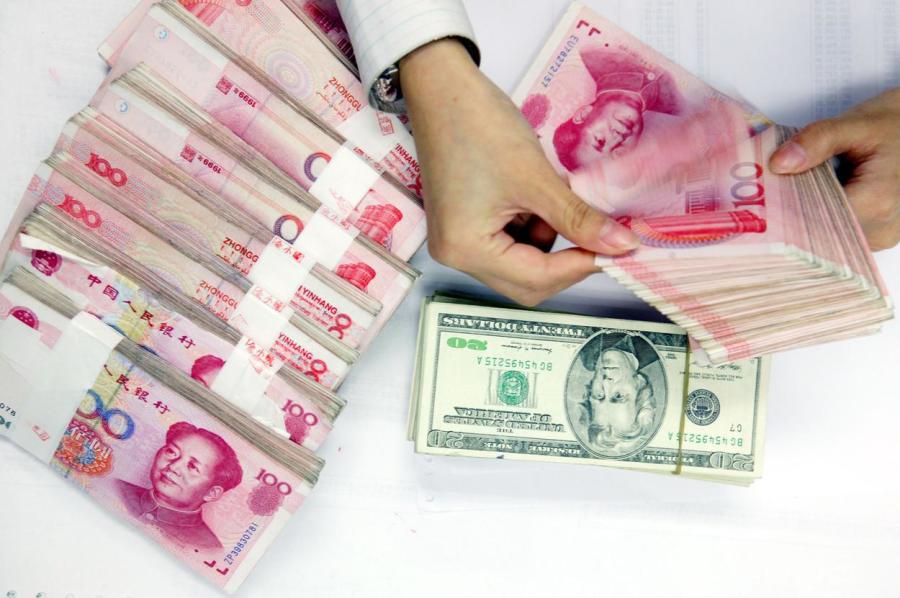As the U.S. Dollar Index continues to strengthen in recent days, the RMB exchange rate against the U.S. dollar continues to decline. Stacks of RMB and U.S. dollars. (Getty Images)
[People News] On Friday, January 3, the RMB (renminbi) exchange rate against the U.S. dollar breached the 7.3 threshold, dropping to its lowest level in 14 months.
On Friday, the RMB stood at 7.3093 per U.S. dollar, a 99-pip drop compared to the previous day’s closing rate. A “pip” is a unit of change in exchange rates, representing a movement in the fourth decimal place (0.0001).
According to Bloomberg, concerns about China’s economic challenges and the widening yield gap between Chinese and U.S. bonds contributed to the RMB’s first breach of the psychological 7.3 barrier since the end of 2023. Despite the Chinese central bank’s efforts to stabilize the RMB exchange rate on Friday, the currency still fell below the 7.3 mark by the afternoon.
The report suggested that the RMB’s breach of 7.3, after remaining stable for nearly ten trading days, might indicate that the Chinese central bank is considering currency depreciation as a response to growing economic pressures.
Wee Khoon Chong, a senior Asia-Pacific market strategist at New York Bank, told Bloomberg that given the continued strength of the U.S. dollar and the persistent decline in yields on Chinese government bonds, it was "somewhat inevitable" that the RMB would fall below 7.3 against the dollar.
He added, “The risk for the USD/RMB exchange rate remains tilted to the upside.”
If the RMB continues to depreciate and breaches 7.3510, it would mean the currency has hit its lowest level against the dollar since 2007.
The Financial Times reported on Friday that the Chinese central bank indicated it might lower interest rates “at an appropriate time” from the current 1.5% level by 2025. This is seen by analysts as a precursor to further RMB depreciation.
State Banks’ Efforts to Stabilize the RMB Fail
Bloomberg reported that state-owned Chinese banks temporarily ceased selling U.S. dollars around the 7.3 level on Friday afternoon. However, this move inadvertently encouraged investors to push the RMB lower. When the exchange rate fell to approximately 7.31, state-owned banks resumed selling dollars. These transactions, being private, were disclosed by anonymous sources.
In 2024, the RMB depreciated 2.8% against the dollar, marking its third consecutive year of decline.
Looking ahead, Bloomberg noted that China’s economic fundamentals point to further RMB depreciation. China’s benchmark stock index has again fallen to its lowest level since September of last year, while sovereign bond yields have hit record lows.
Additionally, U.S. President-elect Donald Trump has announced plans to impose higher tariffs on Chinese exports, intensifying market expectations of RMB depreciation.
Last month, Reuters reported that senior Chinese Communist Party leaders and policymakers were considering allowing the RMB to depreciate further this year to counter the potential impact of Trump’s higher tariffs on Chinese goods.
In November of last year, China’s financial markets experienced the largest capital outflows in history. △
(Dajiyuan reporter Lin Yan contributed to this report)







News magazine bootstrap themes!
I like this themes, fast loading and look profesional
Thank you Carlos!
You're welcome!
Please support me with give positive rating!
Yes Sure!